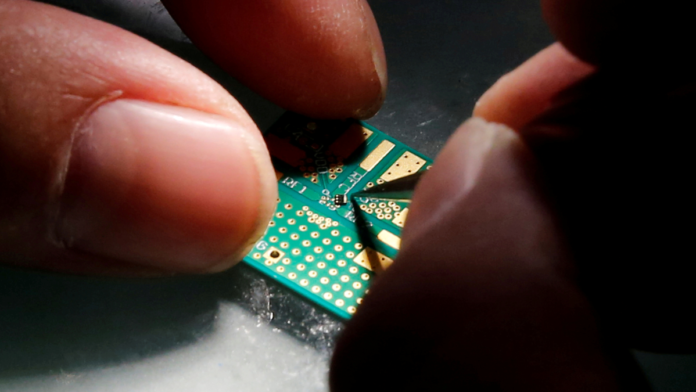COPENHAGEN: Taiwan’s president offered on Monday to work with the European Union to boost its supply of semiconductors in the face of a global shortage of chips, of which the island is a major producer.
“Taiwan will continue to engage with the EU and other democratic partners to establish a more resilient supply of critical goods such as semiconductors and medical supplies,” President Tsai Ing-wen said in a video message broadcast at a democracy conference in Copenhagen.
The Taiwanese president also renewed her call to negotiate a bilateral investment agreement between the European Union and Taiwan. Taiwan’s high-tech chip manufacturing plants are among the largest and most advanced in the world, with the Taiwan Semiconductor Manufacturing Company (TSMC) leading the market. Last week, Washington announced that it was putting pressure on manufacturers to allocate part of their supply to American car manufacturers, in the face of a shortage which has affected multiple sectors and which industry sources expect to last for several more months.
Tsai spoke at the Copenhagen Democracy Summit, organised by the Alliance of Democracies, an organisation which was targeted by Beijing sanctions in March and was founded by former Nato boss Anders Fogh Rasmussen.
Taiwan, which has a population of 23 million, is seen by China as a rebel province that will one day be returned to its fold, by force if necessary.
“Our government is fully aware of the threats to regional security, and is actively enhancing our national defense capabilities to protect our democracy,” the president said on Monday.
Taiwan “is working with its global partners to ensure security and stability in the region,” she added. US President Joe Biden is due to announce his strategy towards China in the near future and there are growing calls for him to make a clear public commitment to defend Taiwan militarily in the event of Chinese aggression.




